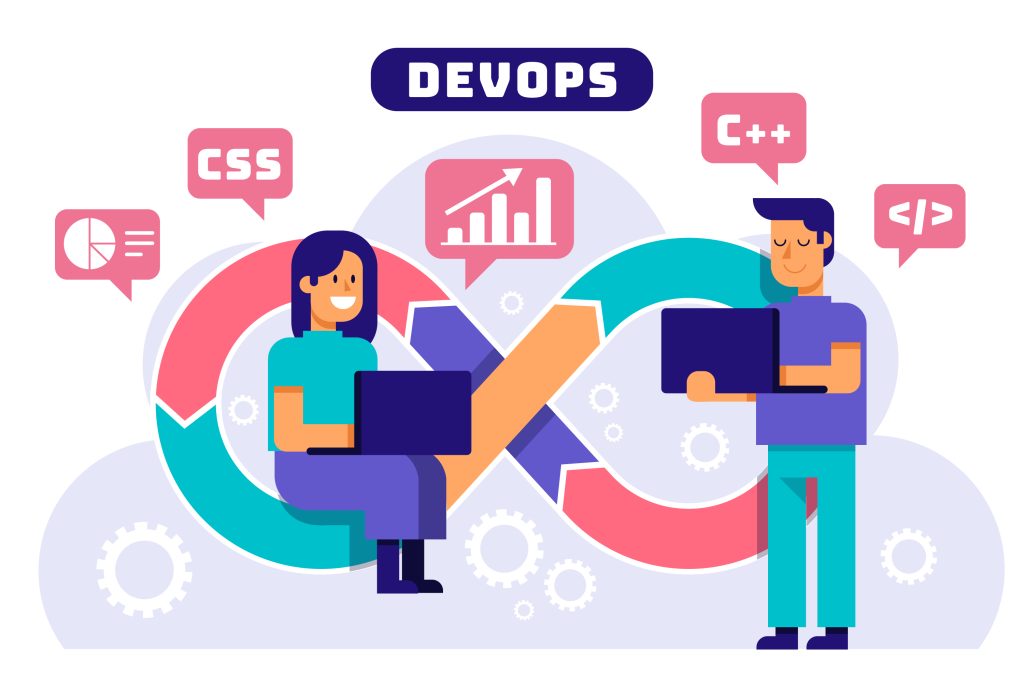DevOps Engineer Jobs require a strong resume and confident interview answers to showcase your technical expertise and problem-solving skills.
Every IT professional has heard the buzz around DevOps. This is not just a trend – this is a change in software development and operations working together. Today, Devops Engineer Jobs is going to grow fastest in technology.
But here is the grip: competition is difficult. Job seekers know that recommends shortlists who start again highlight both technical mastery and cooperation skills. And when the interview comes, success depends on how you explain the real world experiences.
This guide shows how to prepare for DevOps jobs, from resume writing to handling interviews like a pro—plus why skill assessment tools such as Impacteers make preparation smarter.
Visit Us >>>> https://www.impacteers.com/home
1) The Rise of DevOps Engineer Jobs
Organizations want faster product delivery, fewer bugs, and smooth operations. That’s where DevOps engineers come in—bridging development and IT.
Companies hiring for DevOps engineer jobs often look for:
- Expertise in tools like Jenkins, Docker, Kubernetes, Ansible.
- Strong scripting skills in Python, Bash, or Go.
- Cloud platform knowledge (AWS, Azure, GCP).
- Problem-solving mindset and teamwork.
The role has moved from “nice to have” to “business critical,” making it one of the hottest careers in tech.
2) Why Resumes Matter in DevOps Careers
Your resume is the first assessment test recruiters give you. In DevOps, employers don’t just want a list of tools. They want evidence of automation, efficiency, and scalability.
For example, instead of:
“Worked with Kubernetes.”
Say:
“Automated deployment pipelines with Kubernetes, reducing downtime by 40%.”
That small shift turns tasks into measurable impact.
3) Structure of a Winning DevOps Resume
A resume builder can help with format, but the content needs to tell your story. Here’s the structure recruiters scan:
- Headline: “DevOps Engineer | Cloud | Automation | CI/CD.”
- Summary: Three lines on experience and goals.
- Core Skills: CI/CD, scripting, containers, cloud.
- Experience: Achievements with metrics.
- Projects: GitHub links, infrastructure automation case studies.
- Certifications: AWS DevOps Engineer, Docker Certified Associate, etc.
4) Table: Resume Sections & Recruiter Priorities
| Section | What to Highlight | Why It Matters |
| Headline | Role + tools (“DevOps Engineer | Kubernetes |
| Summary | Career focus and achievements in 2–3 lines | Frames you as focused and credible |
| Skills | Jenkins, Docker, Kubernetes, Terraform, AWS, scripting | Shows technical foundation |
| Experience | Outcomes like “Cut deployment errors by 25%” | Highlights business impact |
| Projects | GitHub repos, CI/CD automation, IaC solutions | Proof of practical expertise |
| Certifications | AWS DevOps, Kubernetes Admin, cloud security credentials | Adds credibility and formal recognition |
5) Resume Writing Hacks for DevOps Engineer Jobs
- Use action verbs: automated, scaled, integrated.
- Keep it results-driven, not tool-driven.
- Link live projects or GitHub repos.
- One page if fresher, two pages for experienced IT professionals.
- Match resume writing keywords with the job description.
6) Moving Beyond the Resume: Preparing for Interviews
Getting shortlisted means your resume worked. But interviews are where careers are made. In DevOps jobs, interviews test both technical skills and collaborative thinking.
Expect discussions on:
- CI/CD pipeline setup.
- Handling system outages.
- Scaling infrastructure for growth.
- Team coordination between devs and operations.
7) Storytelling in Interviews
The smartest IT professionals treat interviews as conversations. Use storytelling to showcase your experience.
Example:
“During a product launch, our deployment process caused frequent rollbacks. I automated the CI/CD pipeline with Jenkins and Kubernetes, cutting release failures by 35%.”
This narrative shows problem-solving, technical know-how, and impact.
8) Technical + Soft Skills: The Dual Advantage
DevOps roles demand engineering skills and communication skills equally. You’ll explain technical issues to business leaders and collaborate with multiple teams.
That’s why job seekers who combine problem-solving with clear communication stand out.
9) LinkedIn: The Silent Recruiter
Recruiters often check LinkedIn before a resume. Keep your profile strong with:
- Headline: “DevOps Engineer | AWS | Kubernetes | CI/CD.”
- Certifications displayed.
- Projects pinned as posts.
- Engagement in DevOps communities.
LinkedIn works as a 24/7 resume builder.
10) The Power of Certifications
Certifications prove you’ve invested in structured learning. Popular ones include:
- AWS Certified DevOps Engineer.
- Docker Certified Associate.
- Kubernetes Administrator (CKA).
- Terraform Associate.
While not mandatory, they build recruiter confidence.
11) Common Pitfalls Job Seekers Make
- Listing too many tools without context.
- Forgetting to show measurable outcomes.
- Ignoring soft skills during preparation.
- Not practicing real-world problem-solving before interviews.
These mistakes often cost careers even for talented DevOps engineers.
12) Why Skill Assessment Gives an Edge
Here’s the problem: most job seekers don’t know their weak spots until interviews expose them. That’s risky.
Using a tool like Impacteers skill assessment helps test both technical and behavioral skills. It highlights gaps in knowledge, ensuring you prepare strategically. Instead of blind preparation, you know exactly what to strengthen—making you sharper for interviews and job-ready faster.
13) A Career Roadmap for DevOps Engineers
Month 1: Build portfolio projects—CI/CD pipelines, Dockerized apps.
Month 2: Craft resume, polish LinkedIn, earn one certification.
Month 3: Apply for 20 DevOps jobs, practice mock interviews.
Month 4: Use skill assessment feedback to refine preparation.
Steady, structured effort always beats random attempts.
14) Career Stories: From Struggle to Success
- Vikram: Struggled with generic resumes. After adding metrics, landed three interview calls in a week.
- Rashmi: Used skill assessment feedback to improve cloud knowledge and cracked her first DevOps role.
- Karan: Focused on soft skills, explained infrastructure changes in plain terms, and won over interviewers.
Real stories prove preparation is about clarity, not just coding.

Conclusions:
your path to a devops career Devops engineers require more than technical expertise for cracking in engineer jobs. Recruitors want IT professionals who can show results on resumes, tell stories in interviews, and adapt quickly to high pressure roles.
Through devices such as impacter skill assessment through devices such as writing skills, smart interview strategies, and targeted preparations, the job seekers separated themselves in the competitive market.
Because in devops, companies not only hire engineers – they hire problems solutions that keep running the system and increase businesses.
About Us >>>> https://blog.impacteers.com/
FAQs
1. What makes a DevOps resume stand out?
Clear impact. Show results like reduced downtime or faster deployments, not just a list of tools
2. Do I need a certificate for devops engineer jobs?
It is not mandatory, but certificates such as AWS or Kuberanets add reliability and help you stand out.
3. How should job seekers prepare for devops interview?
Focus on explaining the solution in the stories of the actual project, problem-solution, and simple, clear language.
4. Why do employers take care of soft skills in Devaps Jobs?
Because devops depend on teamwork and communication in many IT functions.
5. How can skill assessments improve interview preparation?
They highlight strengths and weaknesses, helping you prepare smarter. Tools like Impacteers give direction.




Post Comment